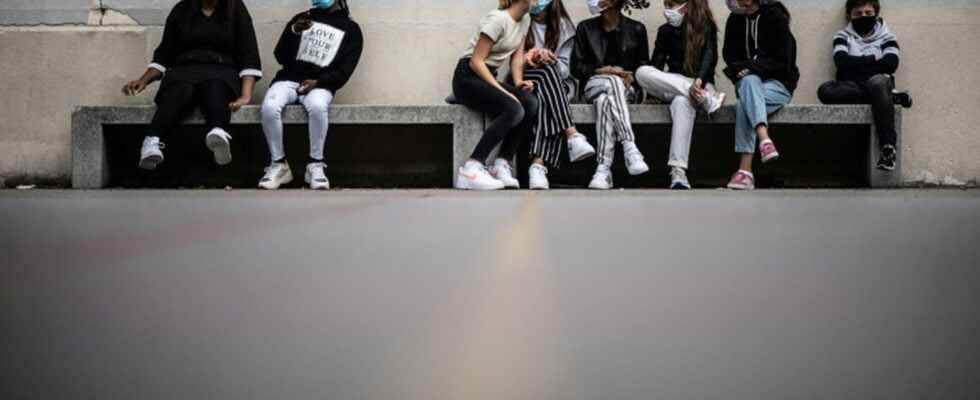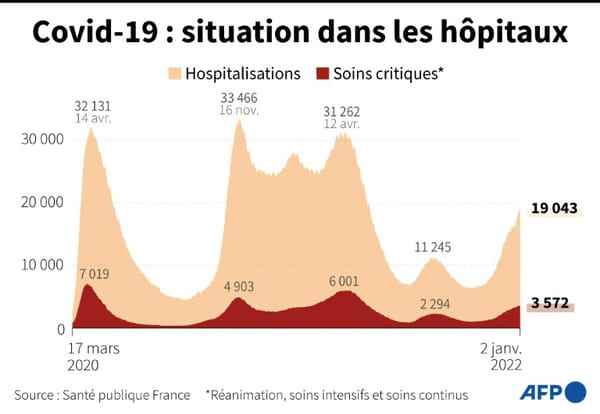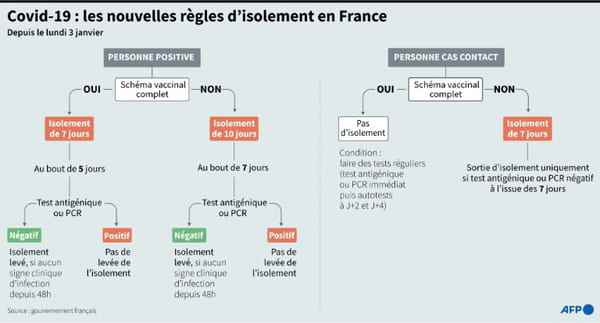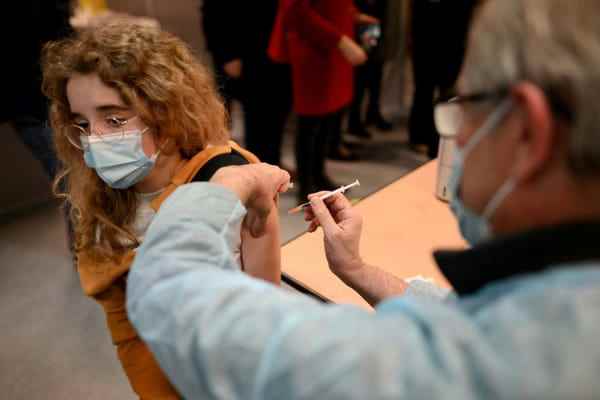New protocol in schools, bitter debates on the vaccine pass in the National Assembly, measures for companies: in the midst of a wave of the Omicron variant of Covid-19, the government is placing the start of the school year and the month of January under close surveillance.
While new rules to try to curb the epidemic come into force on Monday, Prime Minister Jean Castex gathered in Matignon a dozen ministers in order to “measure and anticipate any difficulties to ensure the continuity of public services”, at the time where the explosion of contaminations generates a sharp increase in sick leaves. A similar meeting is scheduled for Thursday.
Health Minister Olivier Véran warned Monday that January would be “difficult in the hospital”, hospitalizations for Covid being added to other pathologies, including winter illnesses such as the flu.
On average over the last seven days, more than 160,000 people have been infected, with daily peaks sometimes beyond 200,000, according to Public Health France.
In the process, hospital pressure is still rising (more than 19,000 patients hospitalized on Sunday evening, including more than 3,500 in critical care), even if it remains for the time being at lower levels than during previous peaks.
At the Assembly, Olivier Véran underlined the “dizzying” figures of contaminations linked to the Omicron variant, a “tidal wave”. He called on parliamentarians to vote for the vaccine pass, a bill of “cold blood and responsibility”.
The deputies will floor all night on this text, expected in the Senate Wednesday in committee and Thursday in session. Its adoption is hardly in doubt, but the LFI, RN and PCF deputies will vote against.
The rebellious presidential candidate Jean-Luc Mélenchon lambasted from the platform a drift towards a “totalitarian society”, Olivier Véran criticizing him for his part for being inspired by “two very bad presidents of the Republic”, Jair Bolsonaro in Brazil and former President Donald Trump in the United States.
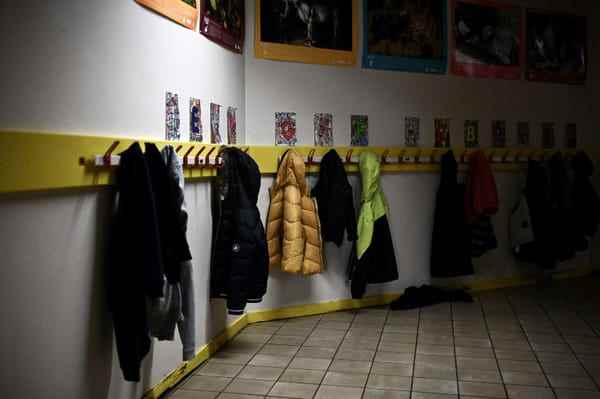
The students made their return to school on Monday as planned, with a modified health protocol only marginally.
© AFP – PHILIPPE LOPEZ
Objective of the text: from mid-January to increase the pressure on the nearly five million French people over the age of 12 unvaccinated who, for lack of being able to justify a vaccination status, will no longer have access to leisure activities, restaurants and bars, fairs or interregional public transport.
With this pass, the government takes its strategy based on a vast vaccination campaign up a notch, relaunched in December with the recommended injection of a third dose, but also the opening of vaccination for 5-11 year olds. on a voluntary basis.
Olivier Véran also indicated Monday that the question of a fourth dose of vaccine would “arise quickly enough for fragile, immunocompromised or very old people”.
He also confirmed a glimmer of hope after almost two years of pandemic, estimating that with the multiplication of contaminations by Omicron and vaccination, there is “a possibility” that this fifth wave is “perhaps the last”, because “it is probable that we have all acquired some form of immunity.”
The Minister of Health clarified Sunday that to have a complete vaccination schedule, it will be necessary from February 15 to have performed its booster dose maximum four months after the previous one, and no longer seven (an infection is always equivalent to an injection ).
– Reinforced tests to return to school –
The students made their return to school on Monday as planned, with a modified health protocol only marginally. The only change: a strengthening of the tests, brought to three in four days if a positive case is detected in a class.
Minister Jean-Michel Blanquer repeated Monday on LCI that “children are the top priority” and “the closure of schools can only be a last resort”.
Elsewhere, in an attempt to curb the epidemic and maintain economic activity, new provisions come into force: wearing a mask compulsory from the age of six, isolation of patients reduced to five days after a negative test, minimum number of teleworking of three days per week where possible, gauges for cultural shows and sporting gatherings or even an increase from four to six in the number of children who can be accommodated simultaneously by childminders.
On the economy side, the government has announced the strengthening of aid for companies affected by health restrictions, particularly for the tourism sector.
“All companies which will have lost 65% of their turnover”, against 80% so far, will be eligible for reimbursement of the partial activity at 100% without remainder of charge, notably indicated Bercy.
All rights of reproduction and representation reserved. © (2022) Agence France-Presse
